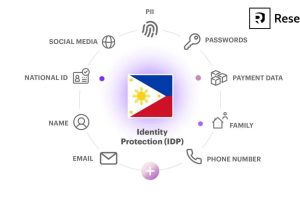In an era marked by the rapid rise of the digital economy, organisations in Singapore are embracing digital transformation to bolster their digital infrastructure. However, a recent Industry Insights Report 2023 on Cybersecurity, released by NTUC LearningHub, sheds light on some concerning disparities in the preparedness of businesses to handle cybersecurity threats.
The report, based on a survey of 200 business leaders and interviews with industry experts, emphasizes the critical role of cybersecurity in today’s digital landscape. It reveals that an overwhelming majority of business leaders (54% strongly agree, 45% somewhat agree) acknowledge the crucial significance of cybersecurity in ensuring their businesses’ viability. Moreover, they consider it essential (48% extremely important, 49% somewhat important) for their organisations to enhance their cybersecurity measures.
Despite this recognition, the report uncovers the disconcerting fact that only 1 in 5 business leaders (22%) feel their organisations are extremely prepared to handle cybersecurity threats effectively. These findings highlight the pressing need for improving cybersecurity measures and preparedness in the corporate sector.
One striking revelation is that just 20% of business leaders strongly agree that their workforce comprehends the necessary steps to take in the event of a cyberattack. The report also underscores a lack of specialized talent within organisations (52%), inadequate resources for workforce training (52%), and a deficiency in basic cybersecurity knowledge among employees (49%) as the primary challenges faced in ensuring robust cybersecurity.
Further insights from the report show that approximately one-third of business leaders (30%) have not enrolled their employees in any cybersecurity training programs in the past two years, despite nearly all business leaders (44% extremely important, 54% somewhat important) deeming it important for all employees to possess basic cybersecurity knowledge.
A notable disparity emerges when comparing different business sectors. Small and medium enterprises (SMEs) lag behind, with only 12% feeling extremely prepared for cybersecurity threats, while larger private companies (27%) and multi-national corporations (27%) display a more substantial level of preparedness.
Commenting on the report’s findings, Anthony Chew, Chief Core Skills Officer at NTUC LearningHub, stressed the importance of equipping all employees with basic cybersecurity knowledge. He emphasized that beyond physical infrastructure security, organizations must instill a culture of cyber awareness and invest in relevant training to arm in-house teams with specialized cybersecurity skill sets. These measures, he noted, are essential to proactively reduce cyber risks and thwart potential cyberattacks effectively.






















